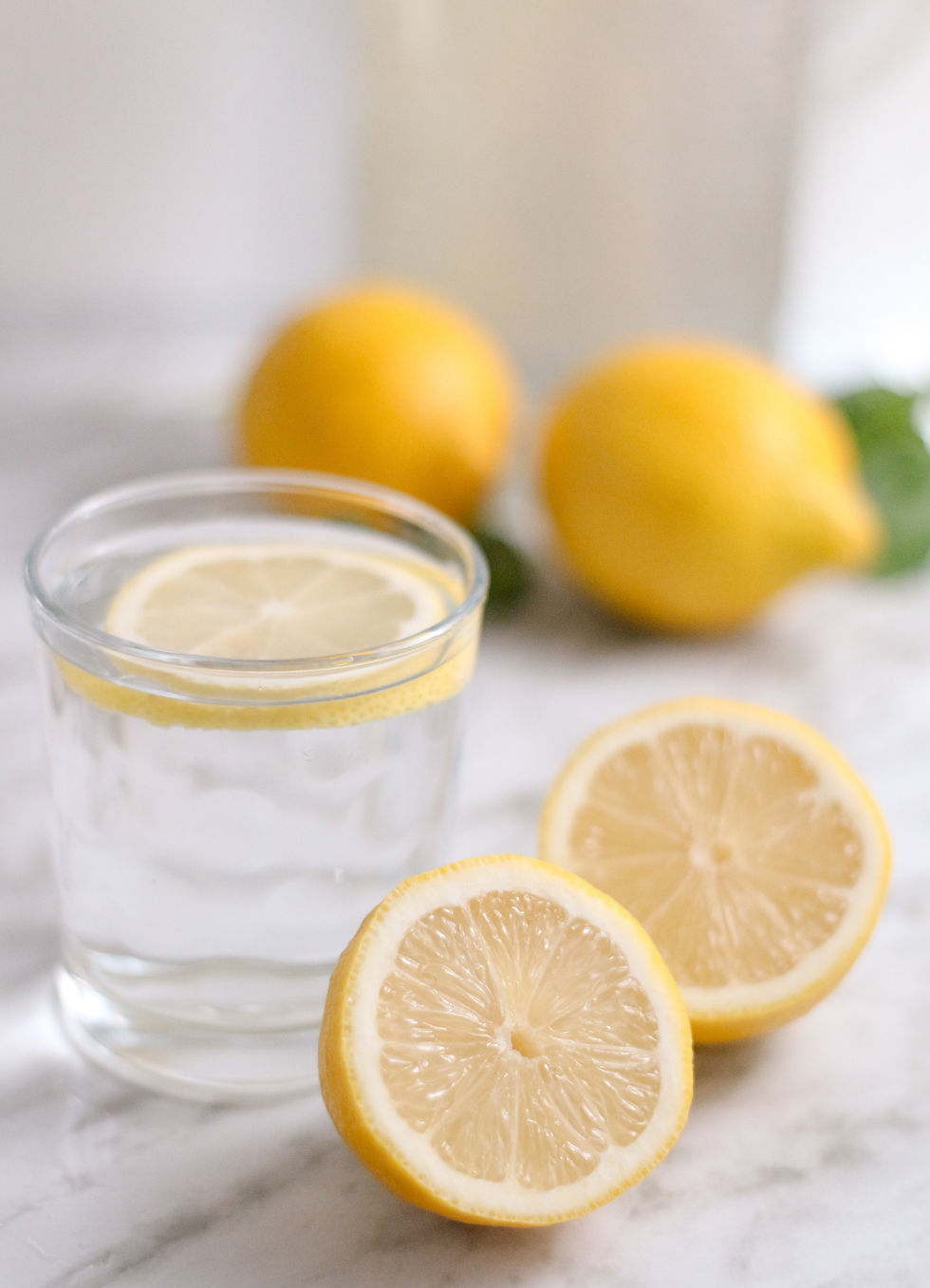We tend to be more aware of the importance of drinking enough water and staying hydrated during the warmer summer months, but dehydration can occur at any time, even in the middle of winter. Your body needs water for so many reasons: to maximize its performance, as an energy source, to support brain function, for skin health, to regulate body temperature, to flush out toxins and wastes, to protect tissues, joints and your spinal cord, and for nutrient absorption, just to name a few.
Not drinking enough water or not consuming sufficient amounts of fluids can lead to dehydration. Signs of mild to moderate dehydration include thirst, dark yellow urine or not having to pee very often, headache, dry or sticky mouth, dry/cool skin, and muscle cramps. Signs of severe dehydration can also include feeling dizzy, rapid heartbeat, rapid breathing, sunken eyes, sleepiness or lack of energy, confusion or irritability, and fainting.
So, to help you avoid getting dehydrated and experiencing some of these symptoms, here are some habits that will help you stay hydrated all day, every day.
Drink a glass of water first thing in the morning
Before you turn on the coffee maker, or start making breakfast, drink a large glass of water first. This has become a morning ritual for me, water before anything else. Your body needs to rehydrate after not consuming any fluids for 8-10 hours. Try adding some lemon juice to help get your digestive system started for the day, an added immune system boost, and natural flavour.

Don't wait until you are thirsty
Feeling thirsty is an indication that you are already dehydrated. Try to drink water regularly throughout the day to maintain a constant level of hydration.
Eat fruits and vegetables
Many fruits and non-starchy vegetables are made up of more than 80% water and can help keep you hydrated. I find this especially useful for keeping young children hydrated, who often don't want to drink water, but love foods like watermelon, grapes, oranges, cucumbers and bell peppers.

When you're feeling hungry, drink water first
Sometimes thirst is confused with hunger. Have a glass of water first, then see how you feel and think about whether or not you are really hungry.
Drink water before, during and after exercise
When you sweat, you need to replace the fluids you are losing from your body. However, this doesn't mean just drinking water after you workout. But, also preparing your body for your workout by drinking water and hydrating prior to your workout (as far ahead as even the night before!), and supporting your body during your workout with more water.
Carry a reusable water bottle with you
This is another habit I have adopted to ensure I am drinking enough water. Find a large, portable water bottle that can travel with you throughout your day and can easily be refilled. Or, keep different water bottles in different locations - in the kitchen, on your nightstand, by the couch, at the office, in the car - making it easier to reach for a sip of water.

Drink on a schedule
If you have trouble remembering to drink water, try drinking on a schedule. For example, drink a small glass of water at the beginning of every hour (setting an alarm on your phone may help to remind you). Or, drink when you wake up, at breakfast, lunch, dinner, snack times, and before bed.
When you eat out, drink water
Every time you eat a meal at a restaurant, drink a glass or two of water. Not only will it keep you hydrated, but it's also free! I rarely order any other beverage at restaurants anymore, just water please!
So, how do you know if you are well hydrated? Well, your urine should be a pale yellow colour and you should be peeing every few hours, your skin should snap back immediately when pinched, your breath shouldn't be stinky (although this might also depend on what you just ate!), and you shouldn't feel thirsty (not a reason to stop drinking water regularly though!). Now go fill up your water bottle and stay hydrated!
Comments